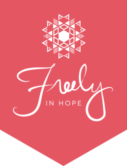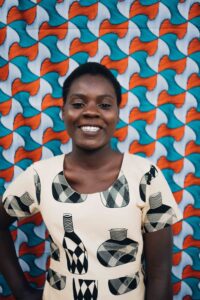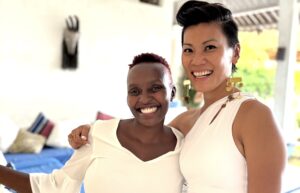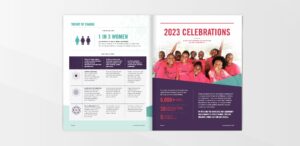Since April is Sexual Assault Awareness Month, we have been opening up dialogue on issues of sexual violence and how we can combat it as leaders.
Even though we are unable to implement programs within schools due to COVID-19, we have been equipping our communities with mental health resources, counseling, and ample support systems.
Rebecca Crook, Executive Director of Metis, and Nikole Lim, our International Director, will be giving insight into how COVID-19 is stimulating innovation in the midst of a pandemic. Join our partners as we share how we’ve found creativity in our mission.
Nikole: How has your work led you up to this point in working with Metis?
Rebecca: I believe that every child deserves a wonderful, life affirming, and relevant education, and most of us don’t have access to that. When I look back at my own life, I was very fortunate to attend a free public school that was revered as high quality, but it was not a place where I felt that I could be my whole self. I was suffering inside; I was raped in high school and I didn’t tell anyone for years. I knew that I wanted to support all children in receiving an education that equips them to make the world a better place. That led me to the classroom as a bilingual Kindergarten teacher in California, but I had always wanted to work outside of the United States and was fortunate enough to relocate to Johannesburg to support a network of private schools as a principal. I later made my way to Nairobi to support principals and to support teacher leadership in informal settlements. Kenya is at such an interesting point in educational reform, and I am excited to be a part of galvanizing a collective of local leaders to be at the forefront of it. In 2017, Metis was birthed and our core program is a fellowship for education leaders who are leading nonprofits or who are in the government, and we support them in scaling path-changing initiatives in learning and teaching.
N: One of the projects you are doing in Nairobi is developing a learning guide for students who are studying from home and need access to more academic resources during this time. We’ve talked before on how crisis and trauma can actually cause us to thrive and be even more creative. I have learned that even though COVID-19 is new, the trauma it has caused is not; therefore we are able to learn from past experiences and use that as a way to propel us forward.
With this understanding that it is possible to thrive in crisis, how has your survivor story and experiences shaped your perspective as a leader?
R: I had never even thought to connect my experience as a survivor of sexual violence with my leadership journey. During this unprecedented time, we all have the opportunity to dig deep into our own reserves of resilience. Even though none of us have experienced a global pandemic before we have all been in places of uncertainty and fear, and we are still here.
N: As we work to innovate in times of trauma, what would you say are the core components of innovation and how are you applying them to your work?
R: Within our process of creating a curriculum at Metis, we empathize and we go through a design thinking process that teaches us to listen and really pay attention to the needs of the community, and we pivot off of that. You are able to see the beauty of community; today Metis supported forty-six education leaders both in their individual initiatives, but collectively they are always supporting each other through our community. Our first approach was making sure all fellows had accurate information to pass on, then we soon pivoted to distance learning, then we realized that we could share all of these lessons in a digital resource hub and create a repository that other educators and parents can use. We then decided to host webinars for parents, because that was a collective issue, so we partnered with an organization called Mum’s Village to host webinars for parents teaching at home. Ask yourself, What’s the need? What do I have? And from there continue to push yourself to be collaborative.
N: How has our leadership changed, and how are we better for those changes?
R: Growth sometimes feels like death; there might be transformation happening but it won’t be pretty. I’ve learned to let go of rugged individualism and the need to stick to a plan; those things need to die. On both a macro level and a micro level, I feel that there is a lot of death that needs to happen in my own leadership.
N: As you’re managing so many fellows in the spectrum and the difficult things they are experiencing, what leadership practice has helped to sustain you?
R: Them. Our fellows are the ones coming up with ideas to adapt and innovate, which makes our programs so much more responsive. Within their own spheres everyone has had to pivot, and the passion with which they have been doing that is inspiring. Our fellows are using this opportunity to completely reimagine education.
N: What are opportunities that you see emerging and that you are excited about?
R: There are huge opportunities for collaboration and learning across the sector and I think that crisis can really galvanize that in very positive ways.
N: What are the measures that one can take to re-energize themselves when they no longer feel innovative?
R: Feel your feels! There is an ambient heaviness in being alive in the world right now. Allow yourself to feel that collective grief. To not feel idealistic is okay; it means you’re paying attention to the pain and suffering, and from there, ask yourself what you can do with those feelings.
N: What is the most rewarding part of your work?
R: Though it is hard to see, learning that the arc of the universe bends towards justice.
N: How can people get involved in the work that you’re doing?
R: Follow our work online @metiscollective, and if you are a learning designer and want to volunteer time, or are interested in sponsoring our physical learning resources which cost $0.17, please reach out!
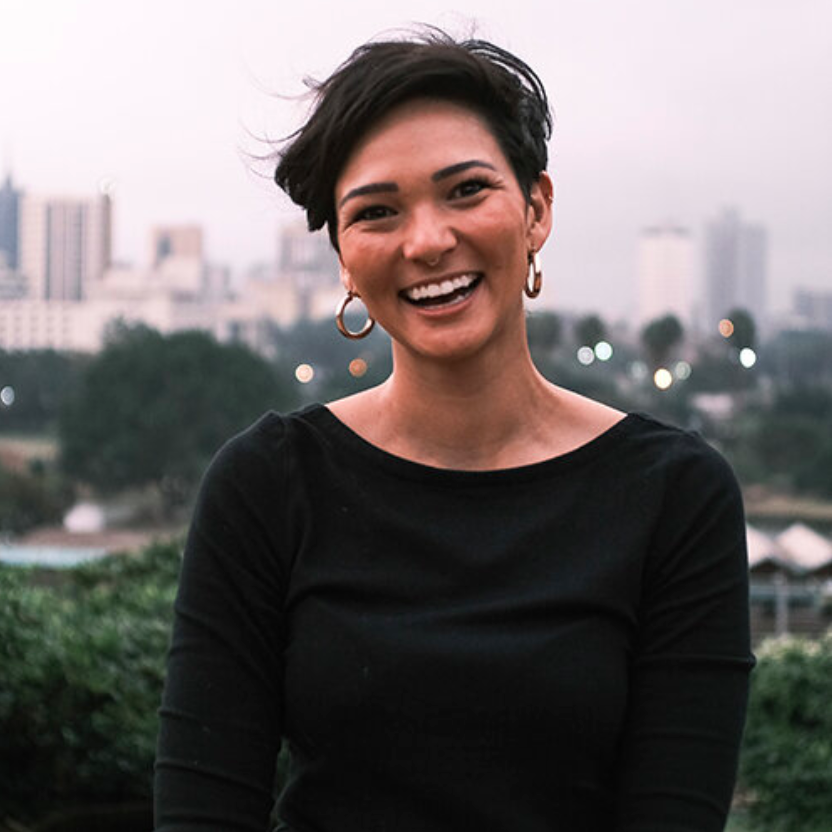
Rebecca Crook is committed to ensuring all leaders and learners have the skills, tools, and community they need to thrive in the 21st century. She has experience as an innovative educator, principal, trainer of education leaders, and Fulbright researcher in diverse contexts. She is the Executive Director of Metis, transforming education through local leadership and innovation. When Rebecca is not designing and facilitating learning experiences, she shares visual stories of education leaders and life in Nairobi on Instagram @stickylittleleaves.
